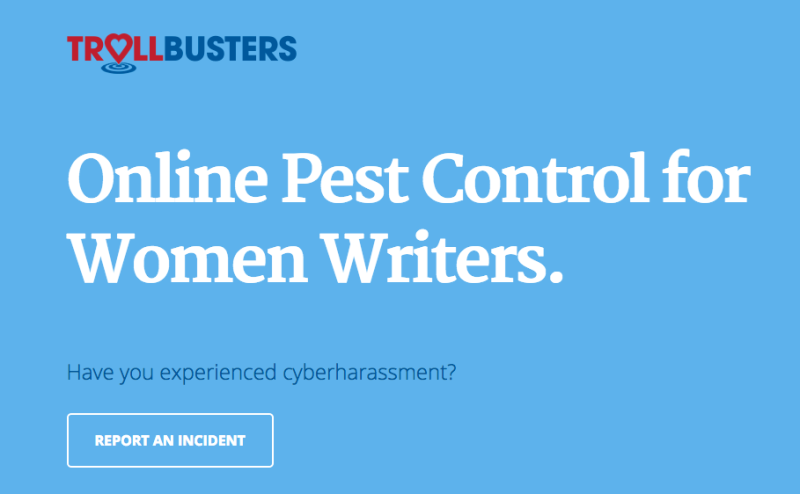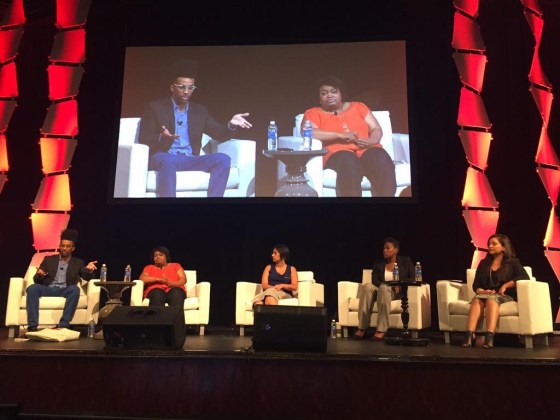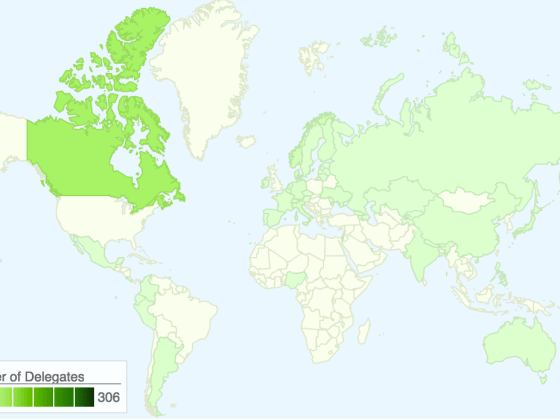By Cassandra Jaramillo
ONA Newsroom
Michelle Ferrier is taking on the trolls.
After months of development, Ferrier, associate dean for innovation at the Scripps College of Communication at Ohio University, has launched TrollBusters. TrollBusters, which went live Friday, works as a digital safe haven for women experiencing harassment.
Online harassment was the subject of Friday’s Online News Association keynote address, “We Belong Here: Pushing Back Against Online Harassment.” Ferrier was a panelist, along with Soraya Chemaly, director of “The Speech Project” at the Women’s Media Center; Amanda Hess, a staff writer at Slate; and Laurie Penny, a freelance journalist. It was moderated by Sarah Jeong, a contributing editor at Motherboard.
Men and women experience similar levels of online harassment, according to a 2014 Pew Research study. But the study found women were more likely to experience more severe forms of harassment such as stalking, sexual harassment or sustained harassment.
TrollBusters gained momentum after winning a top prize and $3,000 in funding earlier this year at the International Women’s Media Foundation hackathon in New York. It also received funding from The Knight Prototype Fund to help develop its positive messaging service to help drown out malicious users.
Victims can report incidents to the site and get help from its virtual “S.O.S” team, which uses technology and moderation to give support.
“I think we are at the forefront of something and working on something that can potentially work worldwide,” Ferrier said in an interview.
Chemaly said when she wrote about experiences with misogyny online, people came forward with their own stories, often looking for help.
“They had nowhere else to go. They couldn’t go to their companies. They couldn’t go to law enforcement,” Chemaly said on the panel.
Some women, like Penny, said they were told the harassment was just the environment of the Internet world.
“A woman’s opinion is the ‘short skirt of the internet.’ The idea that if you fault your brain, or your power or your opinion, then you deserve everything you get,” Penny said. “It is a backlash to the power that marginalized voices are gaining.”
Law enforcement and social media companies are looking to each other and watching how the law is adapting, Chemaly said. But like a weak defensive line, they’re often missing the tackle when trying to determine what is a “true” threat, she said.
Chemaly’s campaign with “The Speech Project” worked to improve Facebook’s cyber harassment policies, but there’s still much to be done with social media companies and news organizations, the panel noted.
“I know there are people from Facebook here. I know there are people from Google here. And I think you need to think hard about what women are to you. And what people of color are to you. Are we targets? Are we click bait? Or are we users as well,” Penny said, defending the publishers who ask for more protection in harassment policies.
Alternate solutions like Ferrier’s TrollBusters aims to protect voices on the internet. But does the project want to shut out the trolls? Surprisingly, not at all.
“Trolls will be trolls. They’re human. What we we need to is mitigate the damage that they do,” Ferrier said.









You must be logged in to post a comment.